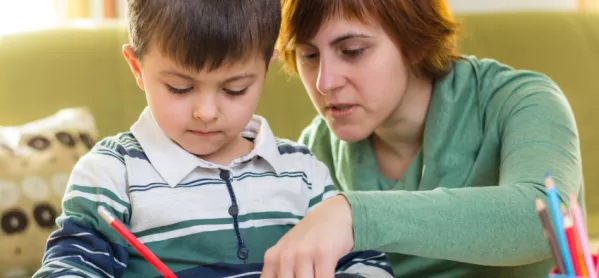If you’re a parent of an autistic child, you might not have time to read this article as you’ll be engaged in intensive “super parent” training. That’s if the recent headlines following the report about Parent-mediated Social Communication Therapy (PACT) ─ a study which apparently shows that training parents to respond to and communicate with their children in a certain way can lead to a reduction in autism “symptoms” ─ are to be believed.
Or if you’re a teacher, you’ll be mugging up on communication strategies to make sure you respond fully to the autistic child in your class, because you don’t want to be held responsible for any signs of autistic severity that child might demonstrate in the future.
Setting aside the silliness of the media response, which has referred to the PACT technique as “super-parenting” and alluded that autism can be “exacerbated by” bad parenting ─ none of which is implied by the Lancet report itself ─ it’s important to try to tease out some of the helpful messages in all of this.
Children must not be ignored
Children deemed to have communication difficulties are often the subject of ardent efforts by parents, school staff and speech and language professionals to improve their communication skills, be it in terms of speech or other methods such as signing or the use of symbols.
These efforts are no doubt both helpful and fruitful. However, what can happen in schools in particular is that the focus is so much on the communication strategies flowing - and at times, flooding - from the adult to the child, that the child’s actual communication attempts are lost in the general cacophony of classroom din and adult-directed learning.
A child’s quiet concentration can in fact be ruined by a supporting adult’s earnest labelling of objects and actions. Or children classified as “non-verbal” are not expected to speak and so when they do, their words, part-words, sounds and gestures are not ‘heard’ because the adult isn’t listening.
If there is one issue to reflect on following the report about PACT, it is that children benefit from the support of sensitive, responsive adults. Communication targets must be set thoughtfully to meet the genuine needs of the child, rather than the school agenda, and children must not be ignored, even if they are not ‘saying’ what we want, or expect, to hear.
Becky Wood is a research fellow in the Department of Disability, Inclusion and Special Needs at the university of Birmingham and project manager of the Transform Autism Education Project.
Want to keep up with the latest education news and opinion? Follow TES on Twitter and like TES on Facebook


